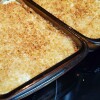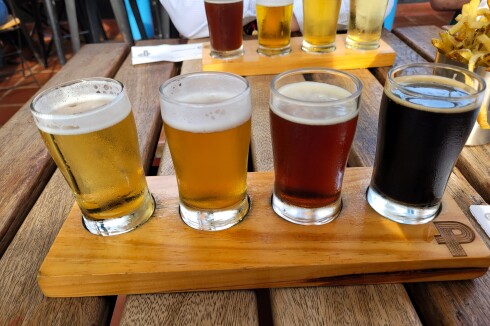Greetings, my friends. Today, I’m writing about the most major beer competition for beer — not necessarily award-winning beer, but the process and the significance of producing an award-winning beer. This is a fun topic, and I love the idea of trying to explain it.

ADVERTISEMENT
I write this after returning from judging the World Beer Cup in Las Vegas. This yearly event takes place just before the Craft Brewers Conference, the yearly conference and trade show for the brewing industry. It is often called “the Olympics of Beer” and began in 1996. Each year, these two events take place in a different city. Last year was Nashville; it was in Las Vegas for the first time.
This competition is one of the largest in the world and is unique in that the beers are also from all over the world. The numbers are impressive: 290 judges from 37 countries spent seven days judging 9,300 beers over 110 categories. That’s over 60,000 bottles and cans opened and served by over 300 hardworking volunteers.
I was impressed this year with the high quality of most beers I tried. The judges are very committed and serious about their jobs. We taste all day, get there early, and keep focus.
Becoming a judge is a rigorous path that requires many steps and expertise. I was told the waiting list is currently three years long and many of the folks I worked with this year had 10-25 years under their belts, so new blood gets added slowly as the competition grows.
ADVERTISEMENT
I’m going to explain how we go about judging these beers. What’s the process? To enter a medal-worthy beer, the brewer puts huge energy into the recipe and the process and thoughtfully considers the category. Also, the safe transport of the beer to the judging venue is critical.
The actual judging is blind. We do not know who made the sample we are evaluating. We are given a category to judge, for example, American Pale Ale. Usually, six judges at a table will judge by rounds.
The first round will typically have 12 beers and we judges pick the three best beers to advance to the next round. We do this by evaluating the beer on several attributes: appearance, aroma, flavor and taste, mouthfeel, technical achievement, true to style, and overall impression. We note comments for the brewer to receive after the competition.
When a beer advances to Round 2, the process repeats. To win a medal, three to five rounds must usually be “won” to advance.
ADVERTISEMENT
At the end, medals are awarded based on these criteria:
- Gold — A world-class beer that accurately exemplifies the specified style, displaying the proper balance of taste, aroma and appearance.
- Silver — An excellent beer that may vary slightly from style parameters while maintaining close adherence to the style and displaying excellent taste, aroma and appearance.
- Bronze — A fine example of a style that may vary slightly from style parameters and/or have minor defects in taste, aroma or appearance.
I am in a unique situation because I am a national-level judge and participate in the process of awarding medals, but I’ve also been submitting beers in competitions for many years. Of course, I am not allowed to judge any categories in which I’ve entered a beer. But, again, it’s a unique perspective of being invested in both sides of the process. This adds to a great perspective in the discussion.
But what does it all mean? A lot. It means winning breweries can advertise their success verified by experts to the public. It means that their beer stands out in excellence. It means that breweries are willing to submit beer with subjective judging in a hugely competitive environment where many great beers are passed up.
Are the competitions fair? Before I started as an official judge, I often felt no, they were not (if I didn’t win). Now, I feel strongly that they are very fair and are being judged by many of the very best beer evaluators on the planet.
I’m not trying to say only seek out medal-winning beer. No way. Always enjoy the beers you love. But breweries that do have distinctive awards in their quiver are surely worth a try.
ADVERTISEMENT
Hopefully, I have helped those of you interested in the "how" of beer competitions and given you some ideas to seek out. The results of the 2024 World Beer Cup are at worldbeercup.org.
Thanks for reading and please email me with questions or comments.
Dave Hoops, who lives and works in Duluth, is a veteran brewer and beer judge. Have a beer-related question for Dave? Email him at dave@hoopsbrewing.com or the News Tribune at lifestyle@duluthnews.com.













